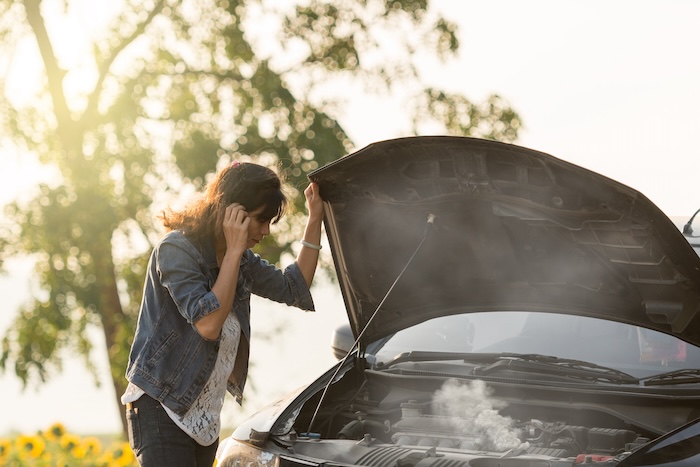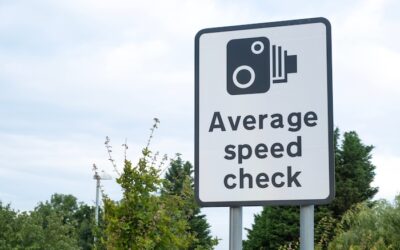We recently shared a guide to keeping your car cool in the summer. This guide focused on how to keep yourself cool when driving in hot weather. In this post we’ll take a closer look at how to keep your car cool, through preventing it from overheating.
An overheated engine can result in a breakdown, and in the long-term it can result in seriously costly damage to your car’s essential systems. So, in this post we’ll explore some of the most common causes of car overheating, while also discussing what you should do if your car overheats.
What are the Main Causes of Engine Overheating?
- Low Coolant Levels – Engine coolant is a mix of antifreeze and water that’s specifically designed to keep your engine cool. If your coolant levels are too low, your car’s cooling system will be less effective, and your engine will be at risk of overheating. Read our full guide to engine coolant, and how it works.
- Ineffective Engine Coolant – If your coolant levels get too low, you might be tempted to top up your levels with water. But water can contain minerals which can make your car’s radiator less effective, while also contributing to corrosion. Plus, water alone won’t cool your engine. You need antifreeze too, or else the water will get just as hot as your engine without providing any cooling.
- Cooling System Issues – Problems with your car’s thermostat or water pump, or leaks and blockages in the cooling system, can cause your engine to overheat, as it means that the engine coolant will not flow like it should.
- Oil Issues – Sometimes, an overheated engine has nothing to do with your engine coolant, and everything to do with your oil. Oil helps to reduce friction between your engine’s moving parts. So, if your oil levels are too low, there can be an excess of friction, which can lead to overheating. Read our full guide to checking your car’s oil levels.
How To Tell If Your Engine’s Overheating
If your engine gets too hot, you’ll see steam pouring out of your bonnet. But there are some early warning signs too:
- Your car’s temperature gauge gives a reading of your engine temperature. You should have a good idea of what a “normal” temperature range is for your car. So, if the temperature starts creeping up, it could indicate that you have a problem – especially if the gauge gets into the red. Your gauge is located on your car dashboard.
- Your car’s bonnet is hot to the touch after you turn the engine off.
- Your car’s engine sounds louder and more strained than usual. This can indicate that your engine’s working much harder than it has to, which can often result in overheating.
- You notice a small puddle underneath your car when you park it. This could be leaking engine coolant, which could ultimately result in overheating.
- You notice black or blue smoke coming from your exhaust. This can indicate a serious problem with your engine, such as burning oil or coolant. Read our full guide to the different colours of exhaust smoke.
What To Do If Your Car Overheats
If you notice black smoke billowing from your exhaust, or steam pouring from your bonnet, you should pull over as soon as it’s safe to do so and turn off your engine. You can then check for certain problems yourself – such as oil levels or engine coolant levels. But wait for your car to cool first, as certain parts of an overheated engine will be dangerously hot to the touch.
In most cases, the best thing to do if your car engine overheats is to head to a garage as soon as possible. An overheated engine can be a symptom of a serious underlying problem, and a trained professional can help you pinpoint the issue and fix it before it gets any worse.
If your engine overheats while you’re out on the road, you may not be able to start it up again without first getting some assistance. That’s why it’s a good idea to take out RAC breakdown cover as an optional extra available with your comprehensive car insurance. That way, if you ever do breakdown, at least you won’t be stranded.
At Go Girl, we offer new driver insurance that will give you all the cover you need at a price you can afford. Get a quote and instant cover online in minutes.




